Published 23 September 2018 ● Last Updated on 14 August 2023
By now many of us know that Singapore imports about 90% of its food supply from over 170 countries on the one hand when on the other hand, discarded food (cooked or raw) is the second-heaviest item in the national bin (Waste and Recycling Statistics). But did you know that 1/5th of food – whether imported or locally produced – is lost or wasted annually in Singapore as per a study by Singapore Environment Council?
First things first. Food loss and wastage are not the same. ‘Food loss’ refers food being discarded along the supply chain- growing, processing, packaging, transporting and marketing- and not reaching the consumer. Food spillages, reduction in quality due to bruising or wilting are some examples of food loss. As for ‘Food waste’, it refers to food that is of good quality and fit for consumption, but does not get consumed because it is discarded―either before or after it is left to spoil. In Singapore, this loss and wastage happens primarily at two levels:
- At home: Poor storage leading to spoilage, expired food, edible but ugly food not being purchased and cooked food wasted on the plate.
- Outside the home: Excess cooked food in restaurants, hawker centers and ugly foods not making it to the supermarket aisles.
Is it even possible to prevent food loss and wastage?
Yes it is! In Singapore, there are a growing number of businesses using tech solutions, charities, environmental advocates, and communities, that are embracing steps to consciously mitigate food loss and waste in an organized manner by redistribution of excesses and the not-so-perfect – both way better solutions than the cheaper option of trashing. We have put together some of the solutions we are aware of, do give us a shout out at admin@secondsguru.com if you have any more to add.
Business ventures
– Local enterprise Ugly Duck works directly with producers, importers and supermarkets to source quality produce and groceries that might otherwise go to waste. Like its fairy tale namesake, it uses them to create food products at its cafe and also sells online!
– A true #techforgood solution, food delivery app, Treatsure, tackles the food waste problem by selling excess fruits and vegetables as well as excess food from hotel and restaurant buffets- at value deals. Treatsure also has select grocery suppliers on its platform who make their surplus items available on its app- buy raw fruits and vegetables from UglyFood or groceries from Unpackt, Amocan and AtasCo among others.
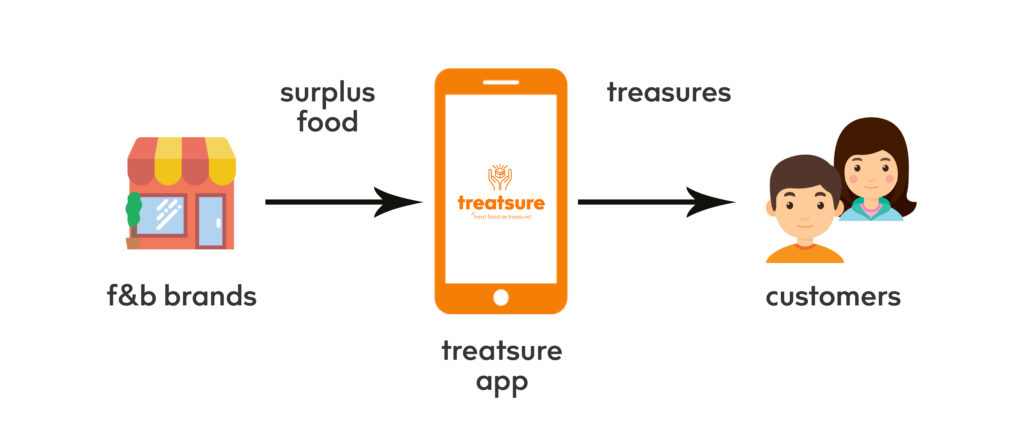
– Major supermarkets in Singapore such as NTUC Fair Price, Giant, Cold Storage and Sheng Siong are beginning to focus on strategies that tackle food loss and waste by managing inventory and purchases effectively, so as to avoid over ordering. They are are also increasingly adopting reduced-to-clear promotions for vegetables, fruits and close-to-expiry products. Use these deals to save on price and save the food!
Charities
1. Food Bank: A member of the Global FoodBanking network, The Food Bank Singapore is a registered charity that collects donations of dry and unexpired food at various drop-off points islandwide and distributes it to over 200 beneficiaries in their network. [Drop off locations list here]. In addition to dry food collection and redistribution, The Food Bank offers opportunities to volunteer. Head over to their Facebook page for latest updates.
Want to volunteer time to help with the sorting, delivery or excess food at The Food Bank? Or even better want to have your next birthday party doing something meaningful? Click here.
2. Food From the Heart (FFTH) : This is a Singapore based-charity set up with a mission to ensure the needy are fed via equitable distribution of food. Some of the programmes that address redistribution of excess food are:
Bread Run: Volunteers from FFTH collect and distribute nearly 28,000 kg of leftover bread monthly from over 100 F&B outlets islandwide, saving nearly 336 tons of bread from reaching the incineration plants.
Market place: The logistics team from FFTH collects packaging-damaged and near-expiry items from all NTUC FairPrice supermarkets. Most of the items are in usable condition and range from unexpired food products, to household items like laundry detergents. The items are sorted by volunteers of FFTH before being donated to welfare homes and those under the Community Food Pack programme. Want to donate food? Just refer to this wish list and make you give count!
Want to volunteer with FFTH? Click here to see the various roles you can play.
3. Willing Hearts : Willing Hearts is a local charity that operates a soup kitchen – this kitchen works all year round to prepare, cook and distribute about 5,000 daily meals to over 40 locations island wide. How do they help manage food excesses? They are open to accepting unexpired food items as well as usable fresh/frozen vegetables, and the items on this list. So if you see rampant wastage in your neighborhood wet-market or your community please connect them to Willing Hearts.
Want to volunteer with Willing Hearts? Click here
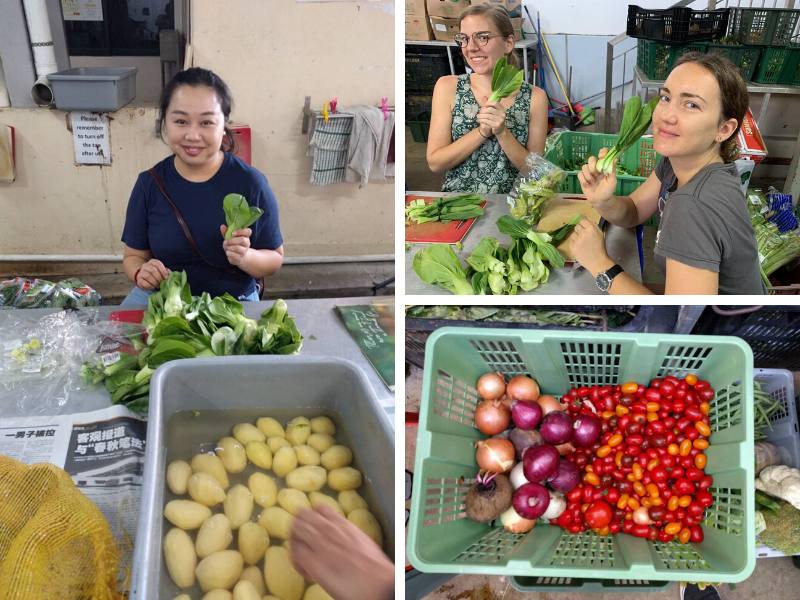
Grass-root Community initiatives
SG Food Rescue is a community of passionate and committed individuals – all volunteers- who literally ‘rescue food’. This they do by visiting fruit and vegetable markets in Pasir Panjang and Little India to pick up unwanted fresh produce. The collections are sorted and shared forward with charities, soup kitchens and by restocking community fridges (present in two locations currently). Read the founder Daniel Tay’s interview with Secondsguru here.
Want to join them and take back a trolley worth of the rescued fruits and vegetables? Click here.

How about saving food waste from heading for the incineration plant?
Some degree of wastage of food is unavoidable, despite best intentions! There are a few commendable initiatives ongoing in Singapore to reduce the burden on the Semakau Landfill.
1. Composting in the community as at the Pavilion’s edible and biodiversity garden located in Bukit Gombak, Singapore. This is a community garden, where residents from the neighboring area and friends from other locations contribute food scraps to the compost pile, helping manage the food waste problem as well as improving the soil productivity. The growers conduct sessions on how to grow edibles and how to compost at the gardens too. Please message them on their FB page to enquire if you want to visit. Foodscape Collective, a network of individuals who are working towards making a circular economy for food, has created a crowdsourced map of food scrap donors and compost makers in Singapore. Click here to find the nearest location to you see the map. You are welcome to join, to contribute scraps, compost or claim some of the finished compost, just sign up using the links!
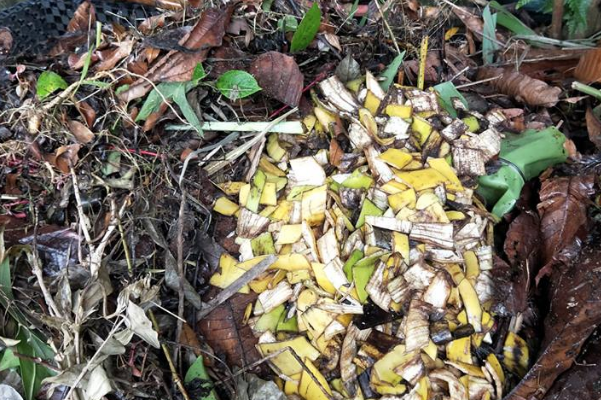
2. Businesses are doing a fair bit too
– Eco- Wiz Group Pte Ltd provides an on-site food waste treatment system that recycles food waste on site and decomposes it into greywater within 24 hrs. This water can be further filtered or reused for non-potable uses. The ecoDigester system has been adopted in more several developments across Singapore, including mixed development malls, schools, hotels, supermarket chains, hawker centre etc. (Source: SFA)
– Siloso Beach Resort in Sentosa composts its food waste – barring meats, oil or anything acidic- using earthworms.
– Two businesses offering tech solutions to combat food waste- both present in Singapore- are Winnow Solutions and home grown Insight by Lumitics. Using AI image recognition and data analytics, the solutions help players in the F&B industry track, manage food waste with an eventual objective to reduce waste and control costs. Sofitel Singapore has installed Winnow’s smart food waste tracking system and managed to reduce food waste by 2-4%.
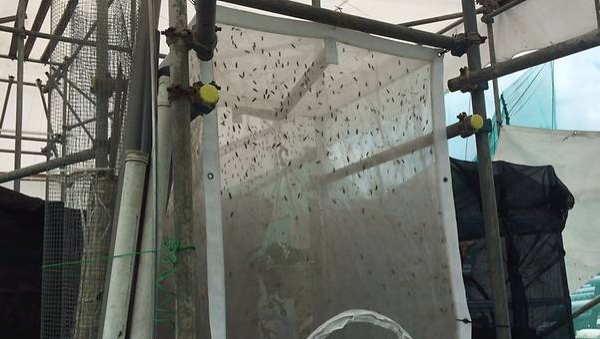
3. Government action
Given that food needs of Singapore are largely met by imports, the Singapore Food Agency(SFA) , was formed in April 2019 to focus on just that- food related issues. It is at the same time that the Govt announced the 30 by 30 target to aim to be self sufficient for up to 30% of the country’s nutritional needs domestically by 2030. Ever wondered how food secure Singapore is? Read this article detailing just that! A landmark Resource Sustainability Act (RSA) was enacted in October 2019 -within this act, the requirements relating to food waste are:
– From 2021: In the design stage itself, developers of new large commercial and industrial premises have to allocate and set aside space for on-site food waste treatment systems.
– From 2024: Large commercial and industrial food waste generators will have to segregate their food waste for treatment.
In the Integrated Waste Management facility, expected to be functional by 2024, the segregated at source food waste from restaurants, hawker centers, supermarkets, etc will be treated to produce bio pulp for co-digestion with used water sludge at the Tuas Waste Reclamation Plant [WRP].
Wondering what YOU can do to address this mammoth problem?
Here are a few handy tips to help you start. What are you waiting for?
#1 Make a shopping list
Buy what you need. Do not give in to the buy 1, get 2 free carrot, if you are not sure of using it. Still bought it, but don’t like what you bought? Try to pass on to a friend after checking.
#2 Buy ‘uglies’, save money in the process
A pretty fruit or vegetable is as tasty as the not-so-pretty one, so go over to the reduced price aisle next time you are in a supermarket, and don’t judge the fruit/veg by its cover!
#3 Out for a meal with friends
Order just enough, in fact lesser than usual. Since you can’t control what the rest of the gang orders, please keep a box for tapao.
#4 Recycle properly
Do not contaminate the recyclables – remove food bits before sending the plastic for recycling. Better still – do not take plastic!
#5 Compost at home
Whether in the balcony or in your backyard, creating your own compost is the best way to monitor what you grow. Refer to this a step-by-step guide by Nparks that you can follow to create your very own organic compost in 3-6 months. Before you start wondering, yes maggots do appear, but if moisture is controlled they are few in number and honestly, they are needed! Wondering how to put a bin together? Here is a list compiled by one of our very own local eco-heroes, Olivia Choong, also known as ‘The tender gardener’. Have a look!
#6 Volunteer and be a part of the solution
– Updated on June 19th, 2020. Original article published on September 23, 2018. This article was updated in 2023 and the new version is available here.
-Related Articles
Sustainable Singapore | Your role in making our Little Red Dot food secure

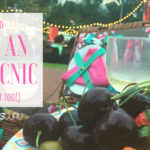
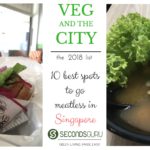
0 Comments